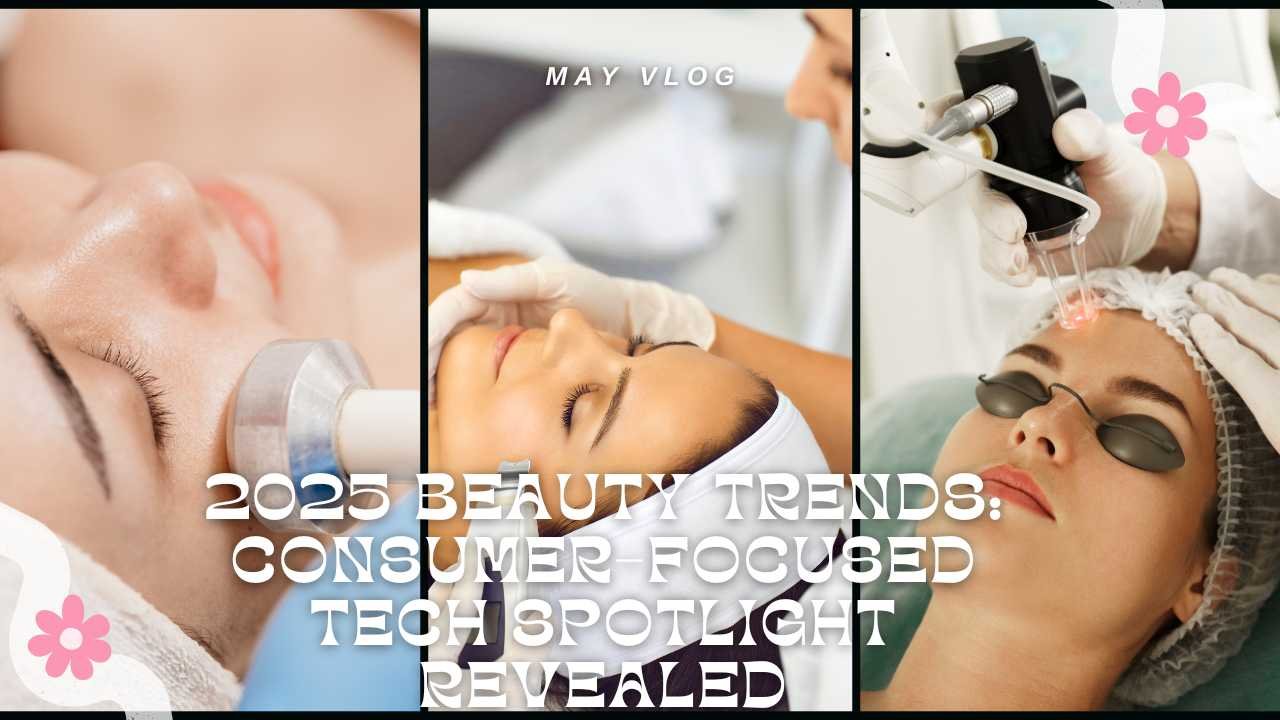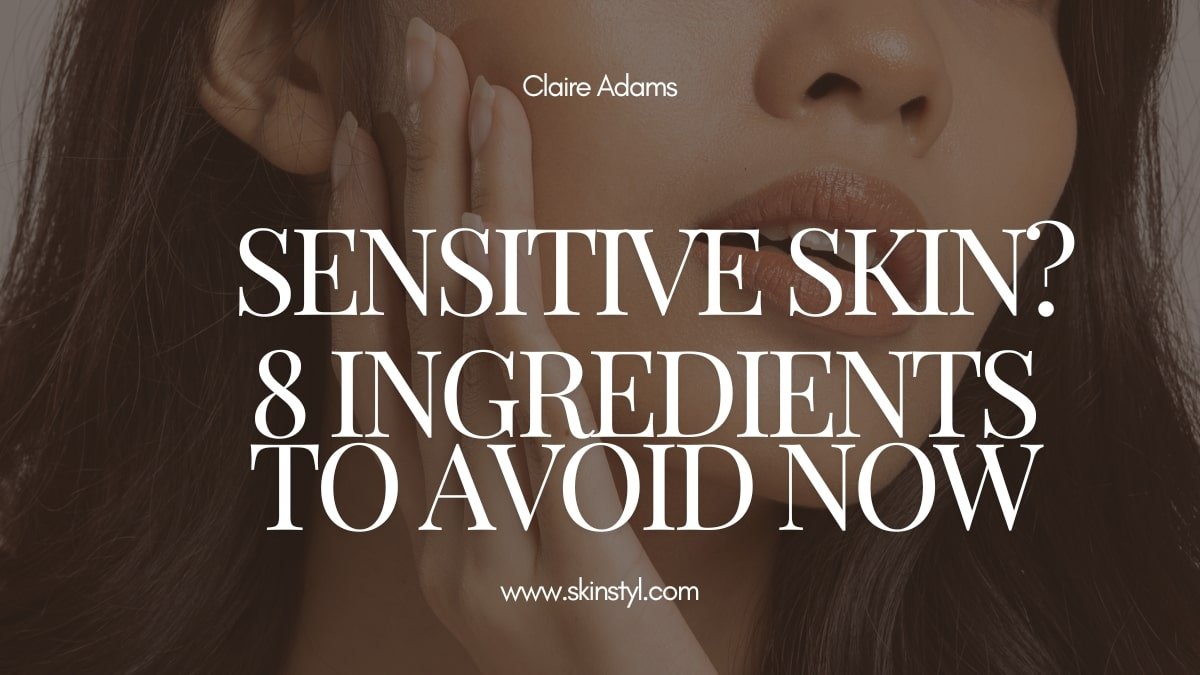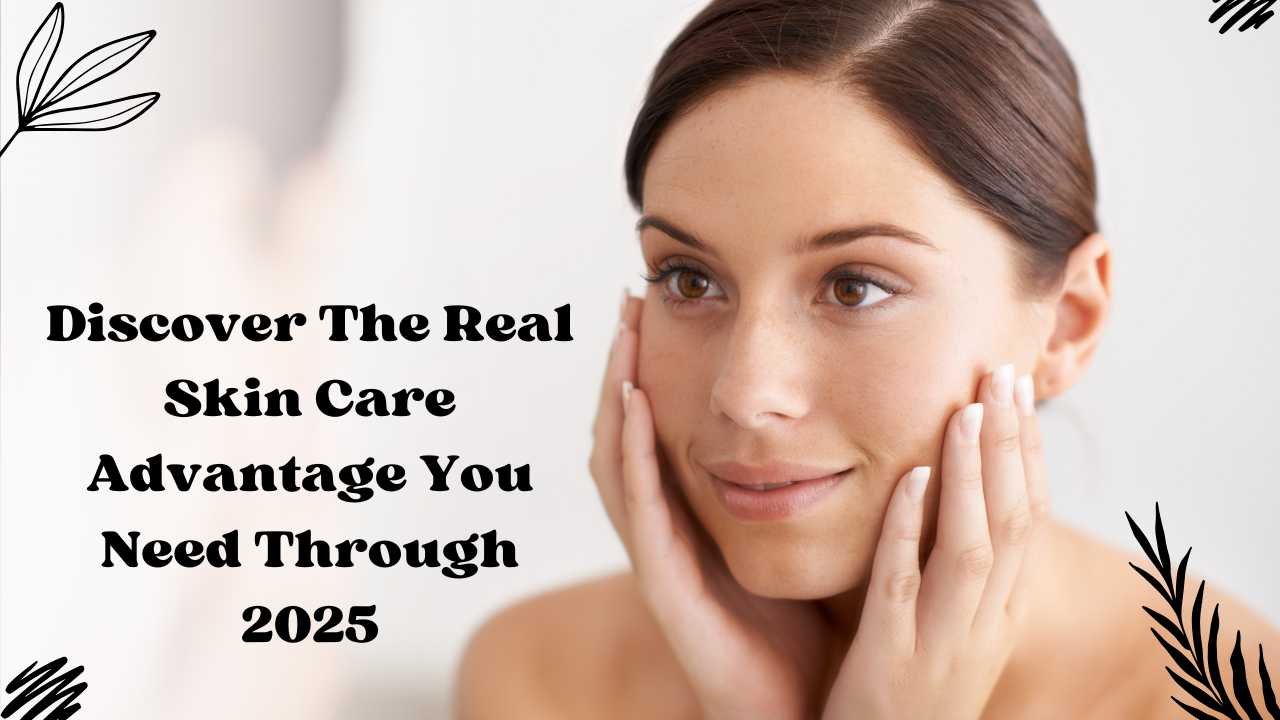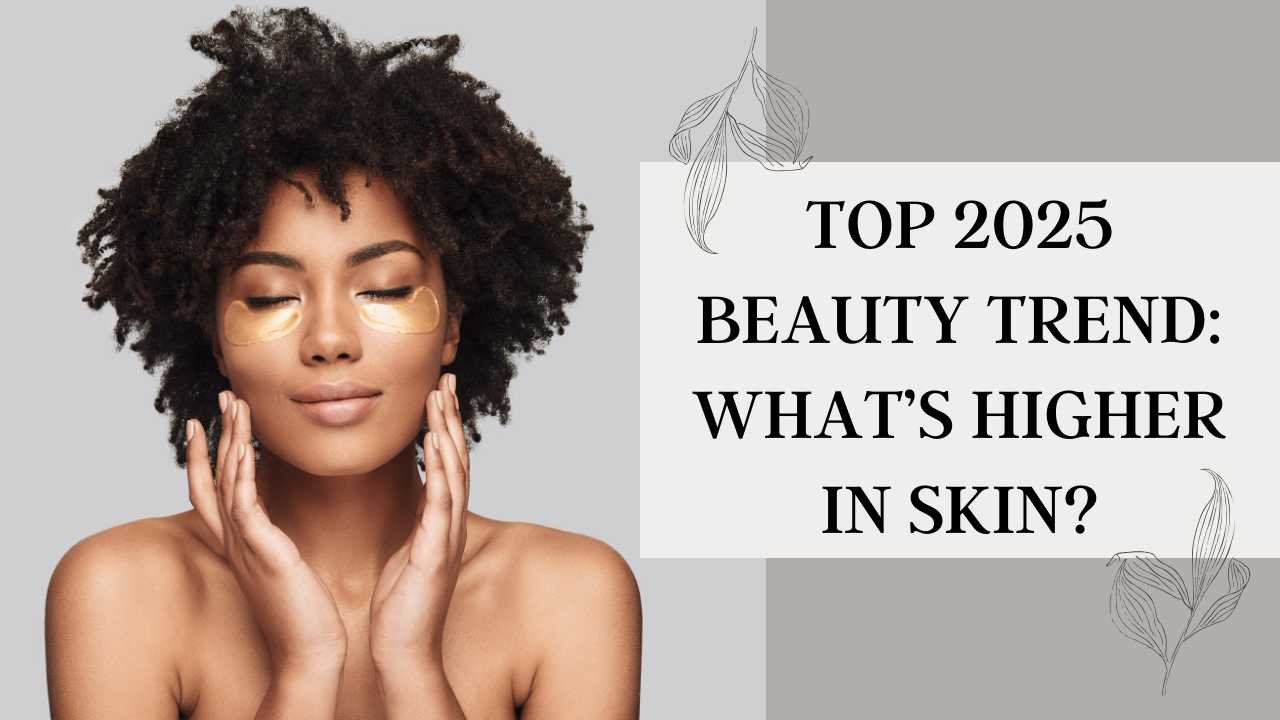In 2025, the personalized beauty devices market is turning heads worldwide. From AI in skincare to smart beauty devices, the way we treat our skin is getting a high-tech upgrade. These AI-powered beauty tools don’t just guess—they scan your skin and deliver real-time advice. Think of connected skincare technology that learns your needs every day.
2025 Beauty Trends: Consumer-Focused Tech Spotlight Revealed highlights this shift, showing how at-home beauty technology and AR try-ons are transforming skincare routines. This shift is more than a trend—it’s the future. The market is set to hit $194.1 million by 2035, growing at a CAGR of 25.4%, making it a space beauty lovers and tech fans can’t ignore. As skincare technology evolves, beauty becomes smarter, more personal, and more global than ever before.
What Are Personalized Beauty Devices?
Personalized beauty devices are changing skincare routines worldwide. These beauty tech devices use smart sensors to scan your skin and deliver tailored care. Unlike regular products, AI-powered beauty tools adjust in real time to your needs. Many use skincare technology that connects to apps, making beauty routines smarter. With connected beauty technology, your skin gets updates like your phone.
These devices offer personalized skincare solutions at home, without a trip to the spa. Whether it’s a cleansing brush or a smart mirror, at-home beauty technology is now part of global beauty trends. In 2025, smart beauty devices are not just tools—they’re personalized skincare partners every beauty lover should know about.
“In the future, beauty will not only be about looking good, but about understanding your skin better through technology.” – Jane Doe, Beauty Tech Innovator
Tech Breakdown – AI, AR, and Beyond
Today’s beauty tech devices go beyond skincare—they think, scan, and adapt. AI in skincare analyzes your skin tone, moisture levels, and texture to tailor personalized results. AR try-ons let you preview looks before buying, all powered by skincare technology. Many of these AI-powered beauty tools use big data to improve over time.
It’s more than gadgets—it’s personalized skincare solutions built on science. In 2025, smart beauty devices offer features like virtual facials and real-time skin tracking. With connected skincare technology, your phone and device work together. This tech isn’t just cool—it’s leading the personalized beauty devices market into a high-growth era, with a CAGR of 25.4% through 2035.
“Technology is bringing skincare to a new level of customization, where beauty is as unique as your skin.” – John Smith, Tech Analyst
Why Consumers Are Embracing These Devices
Around the world, people are turning to personalized beauty devices for control and convenience. At-home beauty technology gives results without appointments. Many choose AI-powered beauty tools because they deliver real-time skincare advice. Smart beauty devices empower users to take control of their skin concerns on a daily basis. The 2025 beauty scene loves how skincare technology blends with lifestyle.
From teens to older adults, everyone wants personalized skincare solutions that work fast. Devices that learn your skin save time and money. As the beauty tech devices trend grows, so does demand for quality and data-driven care. In the booming personalized beauty devices market, consumers want products that fit their unique skin, not just the mainstream.
“The real beauty of personalized skincare lies in its ability to provide tailored, immediate results.” – Sarah Lee, Beauty Blogger
Top Personalized Beauty Devices in 2025
In 2025, smart beauty devices are trending in homes, spas, and on social feeds. Brands like Foreo and L’Oréal lead with sleek, AI-powered beauty tools that sync with apps. These beauty tech devices scan your skin and adjust treatments instantly. From cleansing to LED therapy, personalized skincare solutions are now built into gadgets. Some connected skincare technology even gives daily product recommendations.
As the personalized beauty devices market grows, innovation keeps coming. Global demand fuels the rise of at-home beauty technology designed for all skin types. Whether you’re in New York, Seoul, or Paris, the best skincare technology is now smart, fast, and built just for you.
| Device Name | Key Features | Brand | Price Range |
| L’Oréal Perso | AI-driven skin care, Smart Customization | L’Oréal | $200–$500 |
| Foreo Luna 3 | Personalized cleansing, Sonic Technology | Foreo | $150–$300 |
| Neutrogena Skin360 | Skin scanning and analysis, Personalized Serum | Neutrogena | $100–$200 |
| Opte Precision Skin | Precision skincare, Skin pigmentation correction | Opte | $500+ |
Industry Leaders and Breakthrough Startups
The personalized beauty devices market is driven by big brands and bold startups. L’Oréal and P&G lead with global beauty tech devices built on real consumer data. They invest in AI-powered beauty tools that adapt to skin conditions worldwide. Startups like Opte and SkinGenie are making waves with new skincare technology innovations.
Many offer personalized skincare solutions powered by facial mapping and smart sensors. These companies shape the future of at-home beauty technology with fresh ideas. In 2025, smart beauty devices from startups are as advanced as those from giants. This mix of innovation and scale keeps the industry growing fast—with a projected CAGR of 25.4% through 2035.
“Startups are pushing the boundaries of personalized skincare, creating a whole new market for tech-driven beauty.” – Emily Chen, Tech Journalist
Privacy and Ethical Concerns
As personalized beauty devices become more common, privacy and data security are big concerns. Many AI-powered beauty tools collect detailed skin data to provide accurate results. But what happens to this information? Skincare technology companies must be transparent about data use. Connected skincare technology offers great benefits, but consumer trust is key. People want to know their information is safe when using smart beauty devices.
Regulations around AI in beauty are evolving, and in 2025, consumers expect strong privacy standards. Personalized skincare solutions that prioritize privacy will lead the market. The future of beauty tech devices depends on finding a balance between personalization and protecting user data.
| Concern | Solution |
| Data Security | Strong encryption and opt-out options |
| Transparency in Data Collection | Clear user consent forms |
| Ethical Use of Facial Data | Use of anonymized data for analysis |
| Regulatory Compliance | Adherence to GDPR and CCPA standards |
How to Choose the Right Personalized Beauty Device
Choosing the right personalized beauty device depends on your skin type and goals. Start by considering the technology inside. Look for AI-powered beauty tools that offer real-time skin analysis and personalized skincare solutions. If you’re into connected skincare technology, make sure the device pairs well with an app. Check for options that adapt to your skin’s needs, not just quick fixes.
The best smart beauty devices grow with you, offering tailored treatments as your skin changes. Skincare technology like smart sensors and skin-tracking apps can guide your decision. In 2025, at-home beauty technology lets you take the spa experience into your own hands. Make sure your device works for your skin and lifestyle.
“The right beauty device is one that grows with your skin, offering a truly personalized experience.” – Anna Tan, Beauty Expert
Market Trends to Watch Through 2035
The personalized beauty devices market will keep growing, fueled by innovation and consumer demand. AI-powered beauty tools are already helping users target skincare issues with precision. In 2025, we’ll see more connected beauty technology that uses real-time data to adapt treatments. Expect to see smart beauty devices that offer a full wellness experience, merging beauty and health.
Personalized skincare solutions are no longer just a trend—they’ll be the norm. The beauty tech devices space will also see more subscription services, with ongoing updates for at-home beauty technology. By 2035, the market will be worth $194.1 million, growing at a CAGR of 25.4%, as more consumers embrace AI in skincare and personalized solutions.
| Year | Market Value (USD) | CAGR (%) |
| 2025 | $75 million | 25.40% |
| 2030 | $150 million | 25.40% |
| 2035 | $194.1 million | 25.40% |
Frequently Asked Questions
What Are Personalized Beauty Devices and How Do They Work?
Personalized beauty devices use AI and sensors to analyze your skin and provide customized treatments. These devices adjust according to your unique needs, offering tailored skincare solutions right at home.
Understanding the Functionality of AI-Driven Beauty Tools
AI-powered beauty tools analyze your skin’s characteristics, such as texture and moisture. They use this data to adjust treatments in real-time, providing a personalized skincare experience tailored just for you.
Exploring the Benefits of Connected Skincare Technology
Connected skincare technology links your beauty device to a smartphone app. This allows for real-time tracking, personalized recommendations, and automatic updates, offering an enhanced and customized skincare routine.
Are Personalized Beauty Devices Effective for All Skin Types?
Yes, personalized beauty devices are designed to cater to all skin types. They use AI and sensors to adjust treatments based on specific needs like hydration, acne, or wrinkles.
Tips for Selecting the Perfect Beauty Device for Your Skin
Consider your skin type and specific needs when choosing a personalized beauty device. Look for tools with AI analysis, skin sensors, and custom settings that suit your unique skin concerns.
How Frequently Should You Use a Personalized Beauty Device?
Frequency depends on your skin’s needs and the device type. Typically, using a personalized beauty device 2-3 times a week is sufficient for noticeable improvements, but follow manufacturer recommendations.
Are Personalized Beauty Devices Safe for Sensitive Skin?
Yes, most personalized beauty devices are designed with sensitive skin in mind. They feature adjustable settings to ensure gentle treatments, reducing the risk of irritation while still offering effective results.
Key Advantages of Using Personalized Beauty Devices?
The benefits include targeted skin treatments, real-time adjustments, enhanced convenience, and professional-level skincare at home. They save time, improve results, and offer long-term skin health maintenance.
Can Personalized Beauty Devices Replace Traditional Skincare Treatments?
While they provide convenience and customization, personalized beauty devices complement rather than replace traditional skincare treatments. They offer tailored solutions at home but do not replace professional dermatological care when needed.
What Lies Ahead for the Personalized Beauty Device Industry?
The personalized beauty device market is expected to grow significantly, with advancements in AI, skincare technology, and connected devices. By 2035, it’s projected to be worth $194.1 million, driven by innovation.
Final Thoughts
The future of beauty is personal, high-tech, and smarter than ever. Personalized beauty devices are making it easier for consumers to get tailored skincare at home. From AI-powered beauty tools to connected skincare technology, the innovations of 2025 are all about personalized care. As the beauty tech devices market grows, it offers new opportunities for beauty lovers worldwide.
Whether you’re seeking personalized skincare solutions or the latest smart beauty devices, 2025 is the year to embrace the future of skincare. With a CAGR of 25.4%, this market is on the rise, shaping how we look after our skin for years to come. Get ready to experience beauty in a whole new way.
“Beauty is evolving with technology, offering everyone a chance to experience personalized skincare like never before.” – Lily Carter, Beauty Tech Specialist

SkinStyl was founded by Claire Adams, a beauty enthusiast who believes in the power of confidence, self-care, and personal expression. Claire is passionate about skincare, makeup, and all things beauty, and she’s dedicated to helping others embrace their unique glow. With a love for adventure and a creative spirit, she inspires others to feel their best, inside and out.
Thank you for being a part of SkinStyl. Let’s create your own beauty magic!




